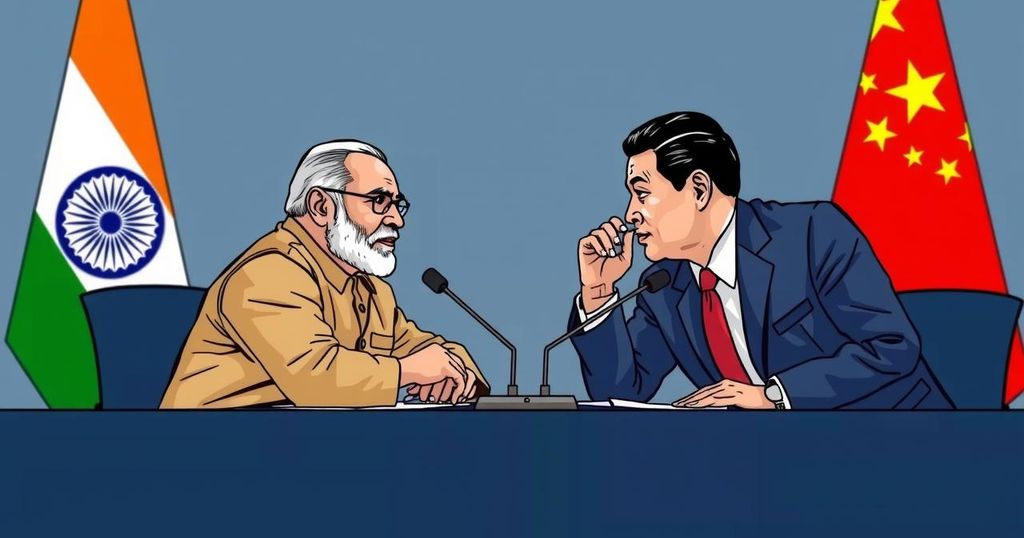India and China Forge Agreement to Mitigate Border Tensions
India and China have agreed on new patrol arrangements to ease border tensions, a significant step following the 2020 Galwan Valley clashes that resulted in casualties. Top Indian diplomat Vikram Misri announced this advancement, although details on the disengagement process remain unspecified. The agreement is particularly relevant as Prime Minister Modi prepares for a BRICS summit, raising questions about potential bilateral discussions with President Xi. The long-standing border dispute spans 3,440 km and has historically strained relations and economic cooperation between the two nations.
India and China have reached an agreement concerning patrolling arrangements that aim to reduce tensions along their contentious Himalayan border, as articulated by India’s foremost diplomat, Vikram Misri. This announcement, made on Monday, signifies a potential thaw in relations following the serious confrontations that took place in the Galwan Valley in 2020, which resulted in casualties on both sides, marking the first fatalities in clashes since 1975. Mr. Misri noted that the agreement pertains to the disengagement and resolution of unresolved issues in border regions that escalated in 2020. Although he refrained from providing specific details regarding the disengagement process or its application to all conflict areas, his statement represents a significant step forward for the two nuclear-armed nations since the aforementioned clashes. The announcement comes on the eve of Indian Prime Minister Narendra Modi’s trip to Russia for a BRICS summit that encompasses Brazil, Russia, India, China, and South Africa; however, Mr. Misri did not confirm whether a bilateral meeting between Prime Minister Modi and Chinese President Xi Jinping would occur. The Galwan clashes were noted for escalating tensions due to the 1996 agreement which forbade the use of firearms between the two armies near the border, prompting troops to clash using clubs and stones. Despite multiple diplomatic and military discussions over the past four years, no substantial progress had been made until now, alongside sporadic incidents in northern Sikkim in 2021 and the Tawang sector in 2022. The historical backdrop includes the 1962 India-China war, which left India with significant losses, and ongoing competitions to build infrastructure along the disputed 3,440 km border, which is often marked by shifting geographical features, resulting in confrontations between army personnel. This border dispute has severely impacted economic ties between the two neighboring nations.
The strained relations between India and China have their roots in a long-standing and poorly defined border that stretches approximately 3,440 kilometers. Historical conflicts, including the war in 1962, have created a legacy of suspicion and military rivalry. The Galwan Valley incident in 2020 further exacerbated this tension, as it resulted in noteworthy casualties and highlighted the dangers posed by the ongoing border disputes and engagements between both nations’ troops, governed by a strict agreement not to employ firearms in combat. The disputes have not only affected political relations but also hindered business interactions, creating a complex environment for both nations in terms of diplomatic negotiations and border management.
The recent agreement between India and China concerning border patrols indicates a crucial attempt to ameliorate the long-standing tensions exhibited in their relations. While the specifics of the disengagement process remain undisclosed, the dialogue represents a potentially pivotal moment aimed at stabilizing a historically fraught relationship, especially in the wake of violent encounters in 2020. Continued efforts are necessary to address unresolved issues and foster peaceful coexistence along the disputed border. The outcomes of Prime Minister Modi’s subsequent discussions in the international arena may further influence the trajectory of India-China relations.
Original Source: www.bbc.com




Post Comment